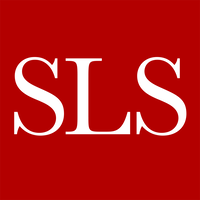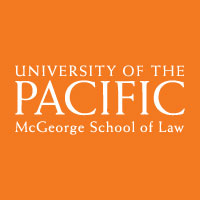Closing Date: 1st November, 2025
Description:
Note: Applications will be reviewed and interviews conducted on a rolling basis. We encourage interested applicants to apply as early as possible.Commitment: Full-time, Fixed-term for two years with the possibility of renewal. The ideal start date is January 2026.
Stanford Law School is encouraging flexible work arrangements. This position has the option to work a hybrid work schedule of up to 2 days of telecommuting per week, with additional on-campus presence for programs and events, as necessary.
Overview:
The John and Terry Levin Center for Public Service and Public Interest Law is central to achieving Stanford Law School's commitment to educating and training new lawyers who are committed to public service regardless of their career path.
The Levin Center is responsible for the development, implementation, and administration of programs, events, workshops and classes that promote and support public service in the legal profession. Its activities include leadership and career development for students and alumni, curricular and program planning, work with student groups, as well as external, alumni, and employer relations. Including the Executive Director, the Levin Center has 6 team members.
The Levin Center is a thought leader within the law school about how to advance the public interest and a partner with our students to provide them support, help them build community, and to develop the skills, vision, and resilience needed to succeed as public interest and public service attorneys.
Stanford Law School seeks to hire an Executive Director for its John and Terry Levin Center for Public Service and Public Interest Law. The ideal candidate has experience working as an attorney in public interest or government practice, is committed to training and supporting new generations of public interest and public service lawyers, and has a proven track record mentoring, supporting, training, or teaching law students and young attorneys. Additionally, the type of person who would excel in this position will have highly developed project and operations management experience, be detail-oriented, and able to manage time well. This position reports to the Associate Dean for Public Service and Public Interest Law.
To be successful in this role, you will have a high level of emotional intelligence and a commitment to community and belonging principles.
Job Purpose:
The Executive Director of the Levin Center works under the broad direction of the law school's Associate Dean for Public Service and Public Interest Law, develops strategy for greater student involvement in the work of the Center, and leads, implements, and administers academic and student-facing programs that promote engagement with public service and public interest opportunities, internships, and careers. The Executive Director serves as an expert advisor to faculty and staff and has a large role in strategy development, long-range planning, and partnership development.
Core duties:
- Provide career counseling to Stanford law students and alumni.
- Develop, implement, and manage Center programs, including the SLS Postgraduate Fellowships Program, the Public Interest/Public Service Mentoring Program, and the Visiting Public Interest Practitioner Program.
- Review programming results, make program improvement recommendations, and implement them.
- Along with the Associate Dean, partner on strategic planning and lead operational support for the Center.
- Oversee all operational aspects of the Center with support from the Program Manager.
- Teach 1-2 courses per year (including Public Interest Practice Overview), develop curriculum, prep course syllabi, and recruit speakers as needed.
- Research and write content for courses.
- Develop the external outreach strategy with alumni and employers.
- Conduct research that supports the development of the public interest legal sector. This includes community building and engagement through writing and producing the Center's newsletter.
- Directly supervises the Program Manager.
Minimum Requirements:
Education & Experience:
Juris Doctor degree and at least three years of relevant experience, or a combination of education and relevant experience. Experience working in nonprofits, governments or their subsidiaries, or private public interest firms as an attorney. Experience developing training, workshops, events, and program partnerships. Experience mentoring young attorneys or law students.
Knowledge, Skills and Abilities:
- Ability to develop programs and partnerships.
- Excellent oral, written, and analytical skills, exhibiting fluency in the legal non-profit/public interest space
- Ability to envision and implement programs, workshops, trainings, and events that meet the needs of adult learners.
- Strong problem-solving skills.
- Ability to oversee and direct staff and build effective teams.
- Ability to manage budgets and develop financial plans.
- Advanced capacity to effectively manage time and multiple tasks simultaneously.
Preferred Qualifications:
- 7 or more years of experience working as a public interest attorney.
- Experience working in an educational environment with undergraduate or graduate students.
- Ability to work independently as well as collaboratively.
- Sensitivity to the diversity of the student body and career interests.
- Sense of humor and ability to work effectively as a member of a team.
How to Apply:
Please submit a (1) resume, (2) a list of three professional references, and (3) a cover letter that includes responses to the following questions:
- Why are you interested in stepping into this kind of position?
- If you could go back in time, what kind of programs or support would you have wanted as a public interest law student?
- Describe your experience working with individuals with identities different from yours and your approach to bridging those differences, including class, race, ethnicity, political opinion, physical or mental ability, gender identity, and religion.
- Describe two to three experiences you have had developing new programs, courses, or trainings for adult learners and how you approach creating educational programs.
Working Conditions:
- May work extended hours, evenings or weekends.
- May travel locally.
- Occasional overnight travel.
Work Standards:
- Interpersonal Skills: Demonstrates the ability to work well with Stanford colleagues and clients and with external organizations.
- Promote Culture of Safety: Demonstrates commitment to personal responsibility and value for safety; communicates safety concerns; uses and promotes safe behaviors based on training and lessons learned.
- Subject to and expected to comply with all applicable University policies and procedures, including but not limited to the personnel policies and other policies found in the University's Administrative Guide, http://adminguide.stanford.edu.
Pay Transparency:
The expected pay range for this position is $111,866 to $146,847 per annum.
Stanford University provides pay ranges representing its good faith estimate of what the university reasonably expects to pay for a position. The pay offered to a selected candidate will be determined based on factors such as (but not limited to) the scope and responsibilities of the position, the qualifications of the selected candidate, departmental budget availability, internal equity, geographic location and external market pay for comparable jobs.
Stanford Law School seeks to hire the best talent and to promote a safe and secure environment for all members of the university community and its property. To that end, new staff hires must successfully pass a background check prior to starting work at Stanford University.
Stanford is an equal employment opportunity and affirmative action employer. All qualified applicants will receive consideration for employment without regard to race, color, religion, sex, sexual orientation, gender identity, national origin, disability, protected veteran status, or any other characteristic protected by law.
Note: The job duties listed are typical examples of work performed by positions in this job classification and are not designed to contain or be interpreted as a comprehensive inventory of all duties, tasks, and responsibilities. Specific duties and responsibilities may vary depending on department or program needs without changing the general nature and scope of the job or level of responsibility. Employees may also perform other duties as assigned.


